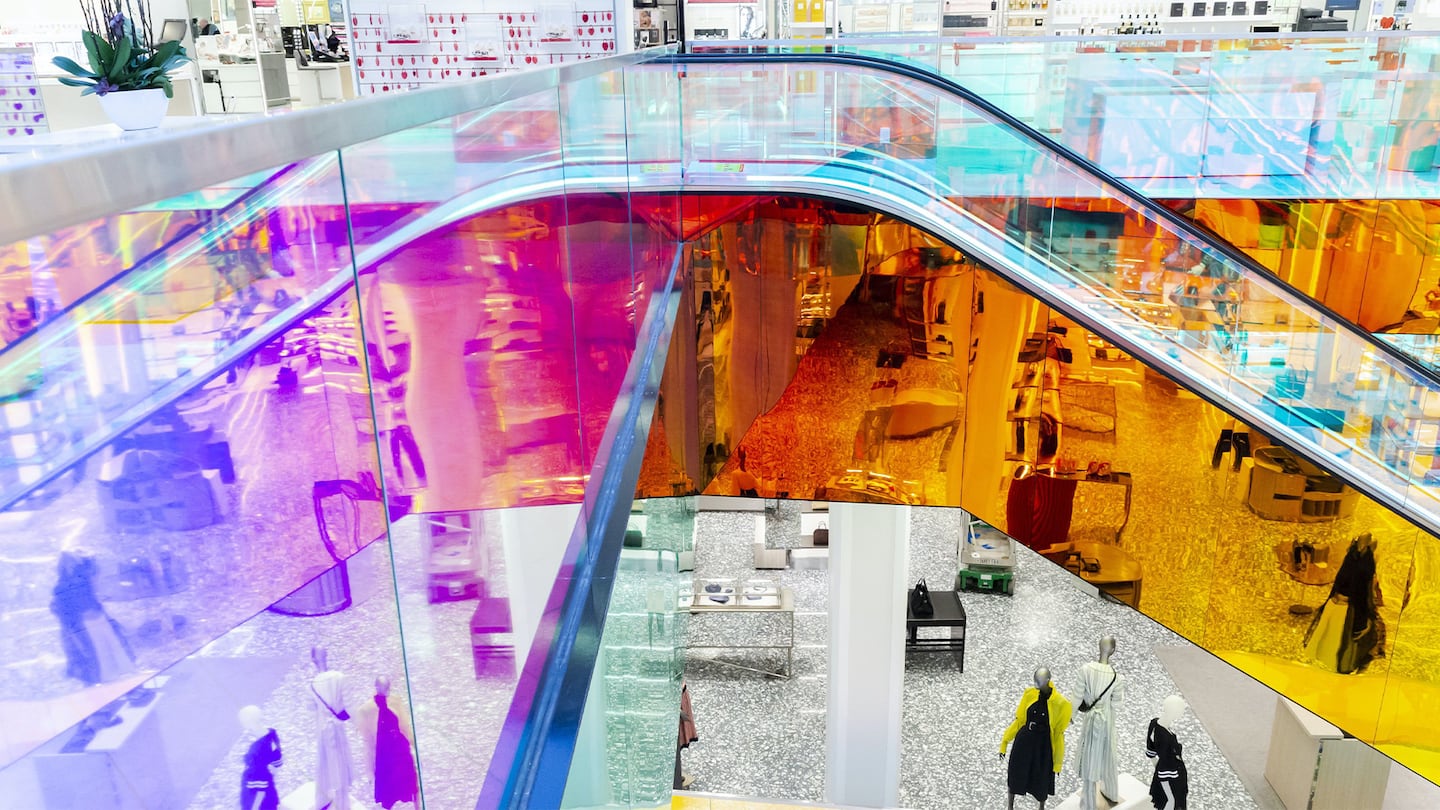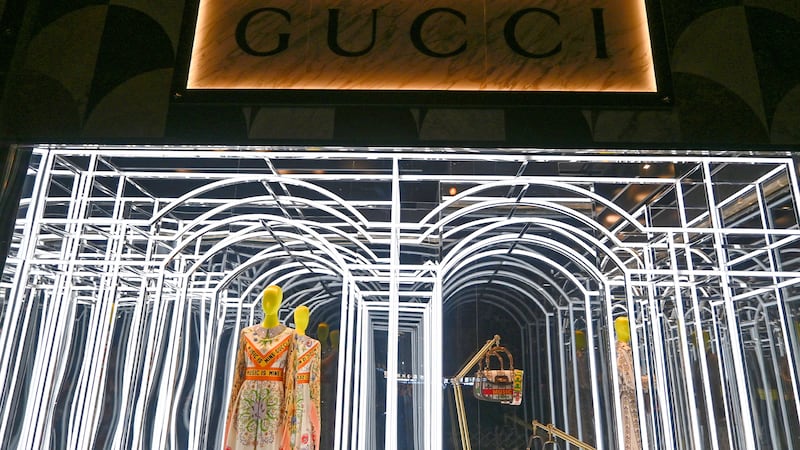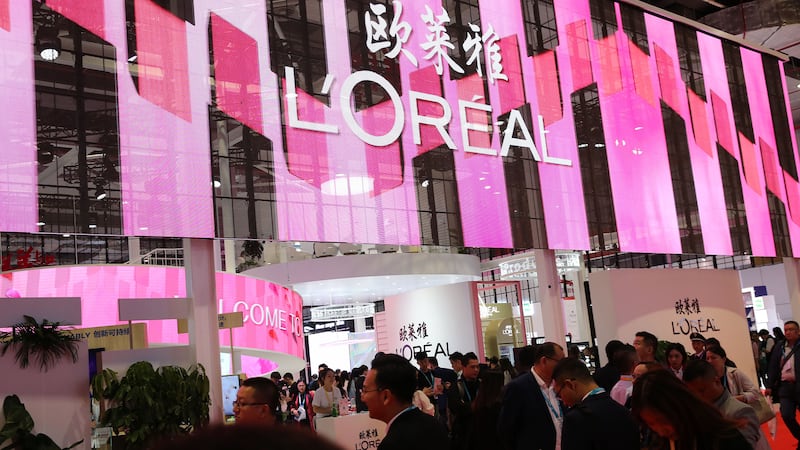
The Business of Fashion
Agenda-setting intelligence, analysis and advice for the global fashion community.

Agenda-setting intelligence, analysis and advice for the global fashion community.

The retail industry may be skeptical of Saks’ e-commerce spinoff, but Saks is laughing all the way to the bank.
After the retailer separated its e-commerce operations from its brick-and-mortar segment earlier this year, creating two different companies under the ownership of parent Hudson’s Bay Company, business has boomed. Both verticals are seeing sales soar past pre-pandemic levels, according to internal documents published in the news.
Now, the digital side of Saks is set to go public at a valuation of $6 billion, triple its projected worth just seven months ago, the Wall Street Journal reported earlier this week. With this capital, Saks will have the resources to acquire top talent, invest in marketing and technology and take a larger slice of the luxury e-commerce market.
Investors in Macy’s, like activist investor Jana Partners, which took a stake in the department store competitor earlier this month, implored Macy’s management to take a cue from Saks. Cowen analyst Oliver Chen estimated in a report published Thursday that if Macy’s did so, even a modest valuation would increase its combined market capitalisation from $8.1 billion to $10.9 billion and push its share price from $26 to $40.
ADVERTISEMENT
But industry insiders are mostly critical of the strategy. At a time when shoppers are increasingly likely to shop across e-commerce and physical retail, often even for a single purchase, does it make sense for major retailers to separate their online and offline operations?
“It’s crazy and nonsensical,” said Steve Dennis, retail consultant and former senior vice president at Neiman Marcus, where he oversaw multichannel marketing and strategy. “There’s just no way not to put the two companies in competition with one another and that’s going to cause inefficiencies [and] ... undermine the overall brand experience.”
There’s no denying that the Saks.com spinoff gives the company tremendous access to new capital. Just two years ago, a $6 billion valuation was unimaginable for the entire Saks business. Saks Fifth Avenue never struggled for survival like many other American department stores, but before going private, parent Hudson’s Bay Company wasn’t exactly in the black. In the 13 weeks ending Nov. 2, 2019 — its last reported quarterly earnings — Hudson’s Bay posted a net loss of $175 million. Total retail sales generated by Saks Fifth Avenue were 799 million Canadian dollars (about $649 million), down from 832 million Canadian dollars in the same period the year prior.
Though the company is in better shape today, a $6 billion valuation is still far higher than what Saks Fifth Avenue could have commanded before the spinoff. Ditto Macy’s and its potential post-spinoff valuation of $10 billion. Cowen’s Chen cautiously highlighted a Macy’s spinoff as an opportunity to “unlock significant value.”
And the window of opportunity may be narrow: investors today are “frothy,” as one analyst put it. Direct-to-consumer unicorn Warby Parker went public earlier this month at a market value of $6 billion — double its previous valuation of $3 billion last year and more than 15 times its 2020 revenue. It remains to be seen how long this level of enthusiasm for e-commerce will last. While Saks has the chance, why not go for it?
So far, this seems to be working. Since the spinoff, Saks has seen business dramatically improve in both online and offline channels. E-commerce sales have been more than 80 percent higher than 2019 levels, while sales in established stores rose 29 percent over the same period, according to a letter penned by Saks chief executive Marc Metrick to the retailer’s vendors and reviewed by Women’s Wear Daily.
Before the split, Saks came up with thousands of potential conflict scenarios between its online and offline arms, according to a source familiar with the arrangement. As a result, hundreds of operating agreements were put in place. For instance, there’s one regarding luxury distribution that allows some stores to sell returned online merchandise without breaking any agreements with vendors. And to avoid discrepancies in product or brand perception, the marketing and merchandising teams for both branches sit under the Saks.com umbrella.
A vital part of the deal was the guarantee that the retail side of the business would grow alongside its digital counterpart. To ensure this symmetry, the e-commerce side would pay the stores side a percentage of revenue, similar to a licensing contract, according to the source.
ADVERTISEMENT
Still, it’s unclear whether Saks can sustain its recent success — and whether other players can replicate its trajectory so far.
“We believe a [Macy’s] spinoff could be possible, and management and the board have and are analysing this possibility along with other value generating initiatives,” wrote Chen. “However, we acknowledge that there have not been many successful long-term proof points, and there are significant risks to destabilising the business and slowing momentum.”
But with consumers increasingly shopping across channels and demanding joined-up experiences, many industry insiders are unconvinced by the Saks strategy, citing longstanding struggles at large brick-and-mortar retailers to integrate physical and digital channels across marketing, merchandising, inventory management and more.
“The idea that you’re operating two separate companies and addressing those issues in service agreements and executive buying for both chains — that just seems so hard to work out,” said Dennis, who added that Neiman Marcus and Sears, where he worked in the early 2000s, saw challenges with this exact issue.
Despite Saks online being the dominant decision maker when it comes to consumer-facing tenets of the business such as products and marketing, operating two separate companies can lead to divergence down the line, according to Neil Saunders, managing director of GlobalData Retail. “There are all these tensions that will potentially creep in,” he said. “When divergence happens, it could be enormously confusing for the consumer.”
With e-commerce leading the charge and attracting the talent, the stores segment could weaken over time, Saunders added. This could prove a problem, because stores are still the most important touchpoint in shopping journeys that may end online. The physical shopping and service experience can leave a lasting impression in the minds of consumers — positive or negative.
“The underlying economics stack up better for omnichannel than single channel,” Saunders said.
A $6 billion IPO will certainly give Saks capital to invest in talent and tech, but competition in the luxury e-commerce space is tougher than ever and cash alone doesn’t drive market share. The bottom line: Saks’ new model has yet to stand the test of time, with consumers and investors.
ADVERTISEMENT
“Valuations against companies like Warby Parker or Vuori make sense because, theoretically there’s a lot of runway,” Dennis said. “But the high-end e-commerce sector is already pretty mature.”
THE NEWS IN BRIEF
FASHION, BUSINESS AND THE ECONOMY

Gucci misses forecasts after sales growth slows. The Italian fashion house’s sales grew by 3.8 percent. Owner Kering’s overall sales grew 12.2 percent, in line with analyst expectations despite the effects of surging Covid-19 cases in the key Asia-Pacific region during the summer.
Hermès shrugs off China slowdown, sales beat forecasts. Sales at Birkin bag maker Hermès grew by 31 percent in the third quarter, beating market expectations even as the pace of the brand’s pandemic rebound slowed from the previous three months. Revenues at the end of the quarter stood at €2.37 billion ($2.76 billion), some 40 percent above their pre-pandemic, 2019 levels.
Ermenegildo Zegna Group sees signs of pandemic recovery in H1. The Italian luxury group returned to profitability in the first half of 2021 after the pandemic sent sales plunging and pushed it into the red. It reported a €31 million ($36 million) profit for the six months ending Jun. 30, compared with a €86.7 million loss during the same period last year.
Chloé becomes luxury industry’s first B-Corp. Richemont-owned Chloé became the European luxury industry’s first major player to achieve certification as a “B-Corp” — a designation for companies that show a demonstrable commitment to having a positive environmental and social impact beyond creating value for shareholders.
Report: Richemont considers divesting from YNAP in favour of Farfetch partnership. The company is exploring options to get the loss-making online retailer off its balance sheet, France’s Miss Tweed reported, citing unnamed sources. YNAP’s sales growth and technological prowess have fallen behind rival platform Farfetch, which sources its inventory using a nimble marketplace model.
Spanx receives majority investment from Blackstone, valuing it at $1.2 billion. Blackstone’s stake in Spanx underscores the opportunity investors see in shapewear, as apparel sales pick up post-pandemic. Sales of women’s underwear, including shapewear, hit $9.8 billion in 2020, according to Euromonitor.
Rent the Runway aims for nearly $1.3 billion valuation in IPO. Rent the Runway plans to sell 15 million shares priced between $18.00 and $21.00 apiece in its IPO, raising $315 million, according to a filing. Goldman Sachs & Co, Morgan Stanley and Barclays are the lead underwriters for the offering.
Partners Group eyes stake in $3 billion watch brand Breitling. The holding group is in advanced talks to acquire a 25 percent stake in the high-end watchmaker from CVC Capital Partners, people familiar with the matter told Bloomberg. A deal could be announced in the coming weeks.
China should brace for higher luxury goods taxes, analysts say. China’s plan to reform its consumption tax system will likely hit luxury goods that use high energy or generate significant pollution, according to analysts at China International Capital Corp. The changes will be focused in areas aligned with China’s goals of reaching carbon neutrality and “common prosperity,” CICC analysts led by Huang Wenjing wrote in a report.
THE BUSINESS OF BEAUTY

Chinese hunger for luxury fuels L’Oréal sales growth. The French group posted better-than-expected revenue growth for the third quarter, and saw luxury sales surge over 20 percent as it benefited from e-commerce channels it expanded during the pandemic. Sales were up 13.1 percent from July to September, beating analyst estimates of growth at around 8 percent.
Halle Berry business partner Kendra Bracken-Ferguson launches platform for Black beauty, wellness founders. The ‘Founders Studio,’ the latest launch for Bracken-Ferguson’s BrainTrust company, promises to help improve long-term business viability and revenue growth for Black entrepreneurs by giving them free access to resources like funding and mentorship from major companies including Shopify, JPMorgan Chase, Salesforce, AfterPay and BeautyUnited.
PEOPLE

Burberry names Jonathan Akeroyd chief executive. The Versace chief is set to join the British luxury brand next April after Marco Gobbetti departs for Salvatore Ferragamo at the end of the year. Akeroyd’s arrival comes as the company is in the midst of a long-standing revival plan.
Zendaya named CFDA Fashion Awards Fashion Icon. The Emmy-winning actress’ contributions to fashion include launching a gender-fluid clothing line, Daya by Zendaya; a collaboration with Tommy Hilfiger; and serving as a spokesperson for Lancôme, Bulgari and Valentino. Zendaya joins the ranks of prior Fashion Icon recipients including Naomi Campbell, Beyoncé and Lady Gaga.
Forever 21 chief executive resigns. After joining the ailing mall chain in February 2020, Daniel Kulle exited the position almost two weeks ago, WWD reports. A retail veteran who joined Forever 21 after 25 years at H&M, Kulle was tasked with reviving the brand immediately following its bankruptcy and joint buyout by Simon Property Group, Authentic Brands Group and Brookfield Property Partners.
Hearst Magazines International names new president. Jonathan Wright, who was previously the global managing director and group publisher of Dow Jones, will oversee the company’s global strategy as well as commercial and editorial operations. Wright will be based in New York and report to Hearst Magazines president Debi Chirichella.
MEDIA AND TECHNOLOGY

PayPal is exploring a purchase of Pinterest. PayPal has recently approached the social media company about a potential deal, people with knowledge of the matter said, reports Bloomberg. The companies have discussed a potential price of around $70 a share, the people said, which would value Pinterest at $45 billion.
Alibaba takes on Shein with international fashion app. The Chinese e-commerce giant launched AllyLikes to target Western consumer markets, Chinese blog Tech Planet first reported.
Singapore’s Shopee expands to France as part of European push. This week, the e-commerce giant that drives sales for brands like Sulwhasoo and Calvin Klein in Southeast Asia unveiled a localised platform for the French market, in a move that will see it come up against global retail giants like Amazon and Alibaba, reports Kr Asia.
Compiled by Diana Pearl
The British musician will collaborate with the Swiss brand on a collection of training apparel, and will serve as the face of their first collection to be released in August.
Designer brands including Gucci and Anya Hindmarch have been left millions of pounds out of pocket and some customers will not get refunds after the online fashion site collapsed owing more than £210m last month.
Antitrust enforcers said Tapestry’s acquisition of Capri would raise prices on handbags and accessories in the affordable luxury sector, harming consumers.
As a push to maximise sales of its popular Samba model starts to weigh on its desirability, the German sportswear giant is betting on other retro sneaker styles to tap surging demand for the 1980s ‘Terrace’ look. But fashion cycles come and go, cautions Andrea Felsted.